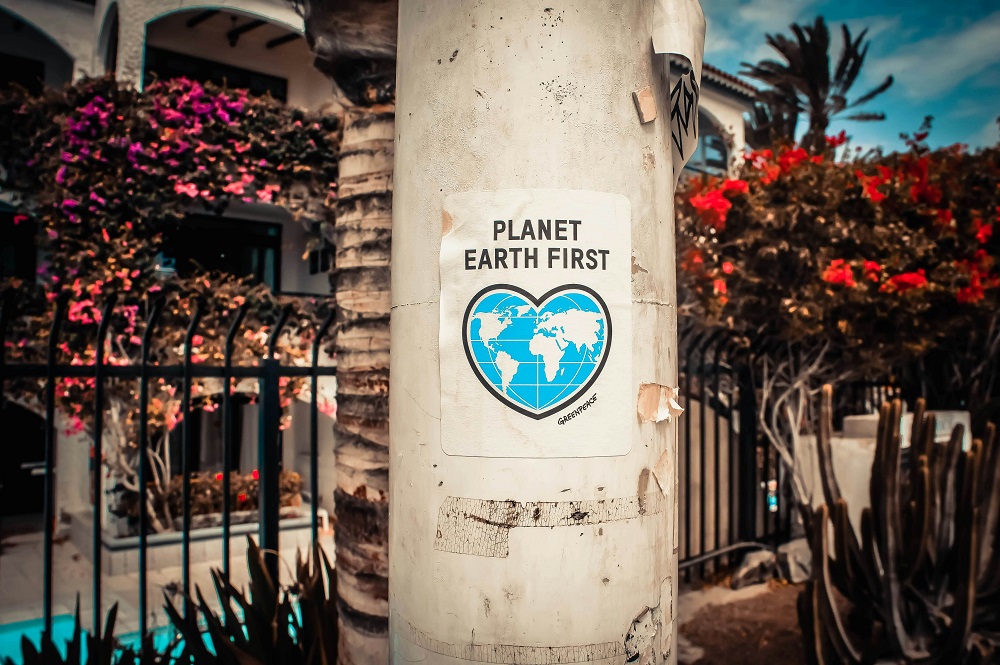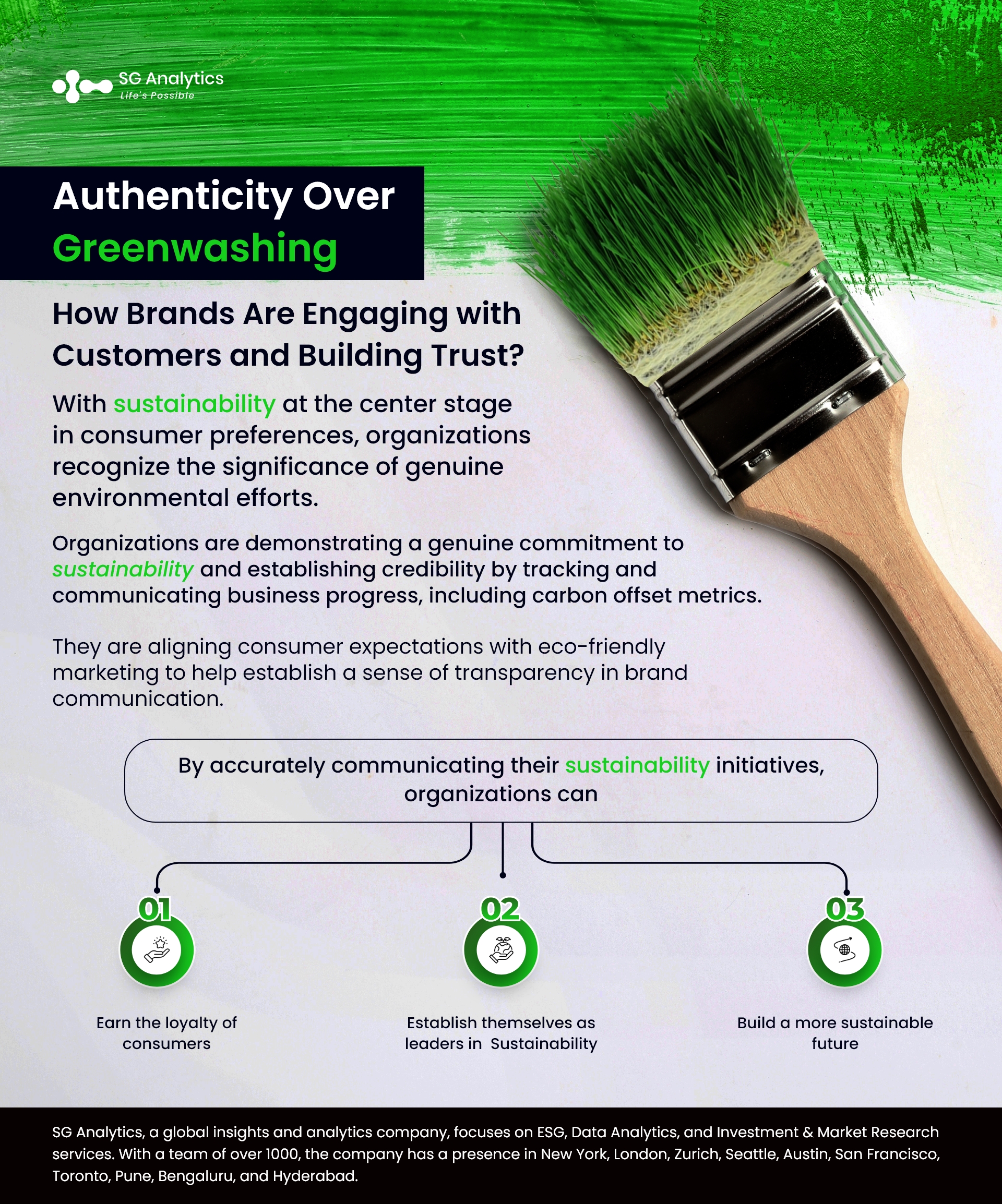In today's era, where environmental consciousness is shaping consumer choices, organizations are on a quest for products and services that align with eco-friendly values. However, this has given rise to a concerning trend towards greenwashing, leading to suspicious marketing strategies to exaggerate their sustainability commitments.
But as sustainability takes center stage in consumer preferences, organizations recognize the significance of genuine environmental efforts. With this surge in eco-consciousness comes the risk of greenwashing – the misleading practice of presenting a positive image of a company’s environmental initiatives.
Businesses are turning to robust supply chain traceability solutions to navigate these challenging landscapes. To avoid greenwashing and ensure authenticity in sustainability claims, organizations are integrating powerful tools to foster genuine environmental responsibility across various industries.
Read more: How can Business Boost Productivity with Generative AI?
Understanding the Greenwashing Dilemma
Greenwashing refers to organizations that use deceptive communication strategies and create an illusion of environmental responsibility while masking their actual business practices. Common greenwashing tactics include green-colored packaging, the misuse of unregulated terms, unrelated environmental imagery, and fake labels. This has led to a growing need for consumers to recognize their genuine environmental efforts amidst the ongoing deception. Recognizing these strategies is critical in distinguishing authentic sustainability efforts from marketing gimmicks.
Consequences of Greenwashing
Greenwashing poses negative consequences for both consumers and the broader sustainability landscape. When greenwashing tactics mislead consumers, they are unable to make informed decisions based on accurate sustainability information. This can lead to frustration when the consumer's trust in environmentally responsible claims is broken.

Moreover, greenwashing sabotages genuine by shifting attention away from organizations that are truly committed to reducing their environmental impact. It further dilutes the significance of legitimate sustainability initiatives and develops skepticism among consumers and stakeholders. It also hampers progress towards a sustainable future by reducing the overall effectiveness of sustainability practices and slowing down the efforts to address pressing environmental dilemmas.
It is, therefore, vital to ensure reliable sustainability claims to maintain the credibility of sustainability initiatives and foster informed consumer choices.
Read more: How to put Sustainability and Innovation at the Heart of your Business?
Bridging the Industry Gap
Consumers have shown a strong emotional affinity towards nature, influencing their green consumption choices. As a result, many consumers are willing to pay more than usual for sustainable products and are likely to purchase eco-friendly items. However, many consumers also admit to being unsure how to identify genuinely eco-friendly products and doubt the credibility of such claims.
This highlights the growing need for brands to bridge the gap between consumer expectations and marketing practices. Simply making vague claims or using nature-related imagery does not help in convincing today’s informed consumers. Brands need to provide factual business insights and sources to back up their sustainability claims. Organizations can demonstrate a genuine commitment to sustainability and establish credibility by tracking and communicating business progress, including carbon offset metrics. Aligning consumer expectations with eco-friendly marketing can further help establish a sense of transparency in brand communication.
Aligning Sustainability Efforts to Track Progress
While transparency and accountability are important, it is equally crucial to recognize that customers are likely to respond differently to a brand's efforts. Brands that strive to implement sustainability goals often face challenges along the way.

Establishing transparency is key to tackling greenwashing in brands. They need to specify measurable goals for their sustainability strategies and employ key methodologies to track and report their sustainable impact effectively. By aligning initiatives with expected outcomes, brands can ensure progress and provide accountability and visibility. A consistent communication stream will help ensure their sustainability efforts align with their brand objectives and commitments.
Read more: Sustainability Trends that Will Shape Corporate Priorities
Balancing Perception and Reality
Today, embracing sustainability is not solely an environmental boon, but it significantly impacts a company’s success. It is imperative for an organization to stress its sustainability needs and rank them in the high-priority list of every corporate agenda.
To navigate the complexities of sustainability claims and establish a trustworthy reputation in the era of conscious consumerism, brands need to focus on nurturing sustainable efforts. Innovative sustainability solutions ensure transparency, accountability, and authenticity in a brand's green initiatives.
By proudly communicating sustainability initiatives without shifting to greenwashing territory, transparency needs to be upheld. Adhering to the mitigation hierarchy and ensuring a positive contribution in compliance with established guidelines will help prevent misleading claims and foster trust. Ensuring product recyclability, fostering transparency across the supply chain, spotlighting sustainable sourcing, and setting measurable metrics for emission reductions will further help solidify a company’s commitment to authentic change.
Putting the Environment First
When making an environmental impact, organizations need to be mindful of their overall carbon footprint. Implementing minor sustainability measures while contributing to a large carbon footprint can lead to accusations of greenwashing.
When developing marketing materials, it is critical for marketing teams to utilize specific data points and showcase how an organization's products, practices, manufacturing processes, and distribution methods are contributing to reducing its carbon footprint. They can authentically demonstrate their commitment to environmental sustainability by communicating all the information in detail.
Read more: How to Spot Greenwashing: 2024 Outlook

Final Thoughts: A Call for Balanced Action
Today, businesses are compelled to adopt sustainable practices and effectively convey these modifications to their stakeholders.
The surge in sustainability consciousness among consumers is further fueling the growth of greenwashing in the sustainability market. As a result, sustainability marketing is emerging as a potent strategy for businesses to gain a competitive edge. While motivations behind their sustainability endeavors may differ, maintaining authenticity is vital.
An increasing number of consumers are expressing heightened concern regarding the environmental consequences associated with the products and services they purchase. Many organizations actively communicate their sustainability efforts by aligning and catering to consumer demands while effectively conveying these changes to their stakeholders. As a result, there is a growing need for reliable sustainability claims to build trust, differentiate from greenwashing, and drive positive environmental impact.
Today, sustainability is not just a trend or a marketing tactic; it has evolved into an endeavor to nurture a healthier and greener future. To successfully attract and retain discerning consumers, it is important for businesses to navigate this fine line with utmost precision. By accurately communicating their sustainability initiatives, organizations can earn the loyalty of consumers and establish themselves as leaders in sustainability to build a more sustainable future.
SG Analytics, recognized by the Financial Times as one of APAC's fastest-growing firms, is a prominent insights and analytics company specializing in data-centric research and contextual analytics. Operating globally across the US, UK, Poland, Switzerland, and India, we expertly guide data from inception to transform it into invaluable insights using our knowledge-driven ecosystem, results-focused solutions, and advanced technology platform. Our distinguished clientele, including Fortune 500 giants, attests to our mastery of harnessing data with purpose, merging content and context to overcome business challenges. With our Brand Promise of "Life's Possible," we consistently deliver enduring value, ensuring the utmost client delight.
A leader in ESG Services, SG Analytics offers bespoke sustainability consulting services and research support for informed decision-making. Contact us today if you are searching for an efficient ESG (Environmental, Social, and Governance) integration and management solution provider to boost your sustainable performance.
About SG Analytics
SG Analytics (SGA) is a global data solutions firm that harnesses data with purpose across the data value chain - from origination, aggregation, management, modernization, and analytics to insights generation to create powerful business outcomes for its customers. Through its research and data analytics consulting services, SGA marries content with context to provide bespoke solutions to its customers, enabling them to improve efficiency, scale, and grow. The company has a presence in New York, London, Zurich, Seattle, Austin, San Francisco, Toronto, Pune, Bangalore, Hyderabad and Wroclaw. The firm serves customers across the banking financial services and insurance (BFSI), technology, media and entertainment (M&E), and healthcare sectors amongst others, including Fortune 500 companies.
Apart from being recognized by reputed firms such as Analytics India Magazine, Everest Group, and ISG, SG Analytics has been recently awarded as the top ESG consultancy of the year 2022 and Idea Awards 2023 by Entrepreneur India in the “Best Use of Data” category.









